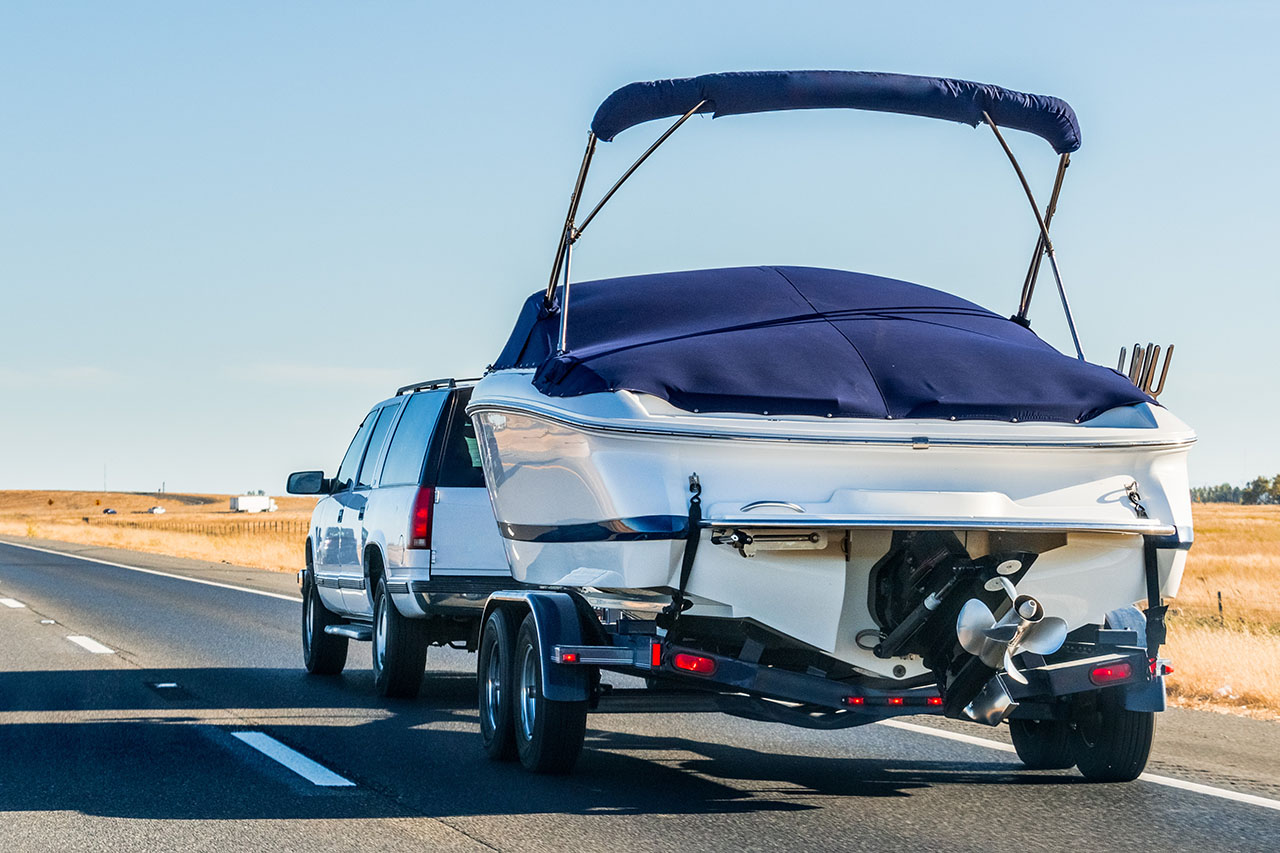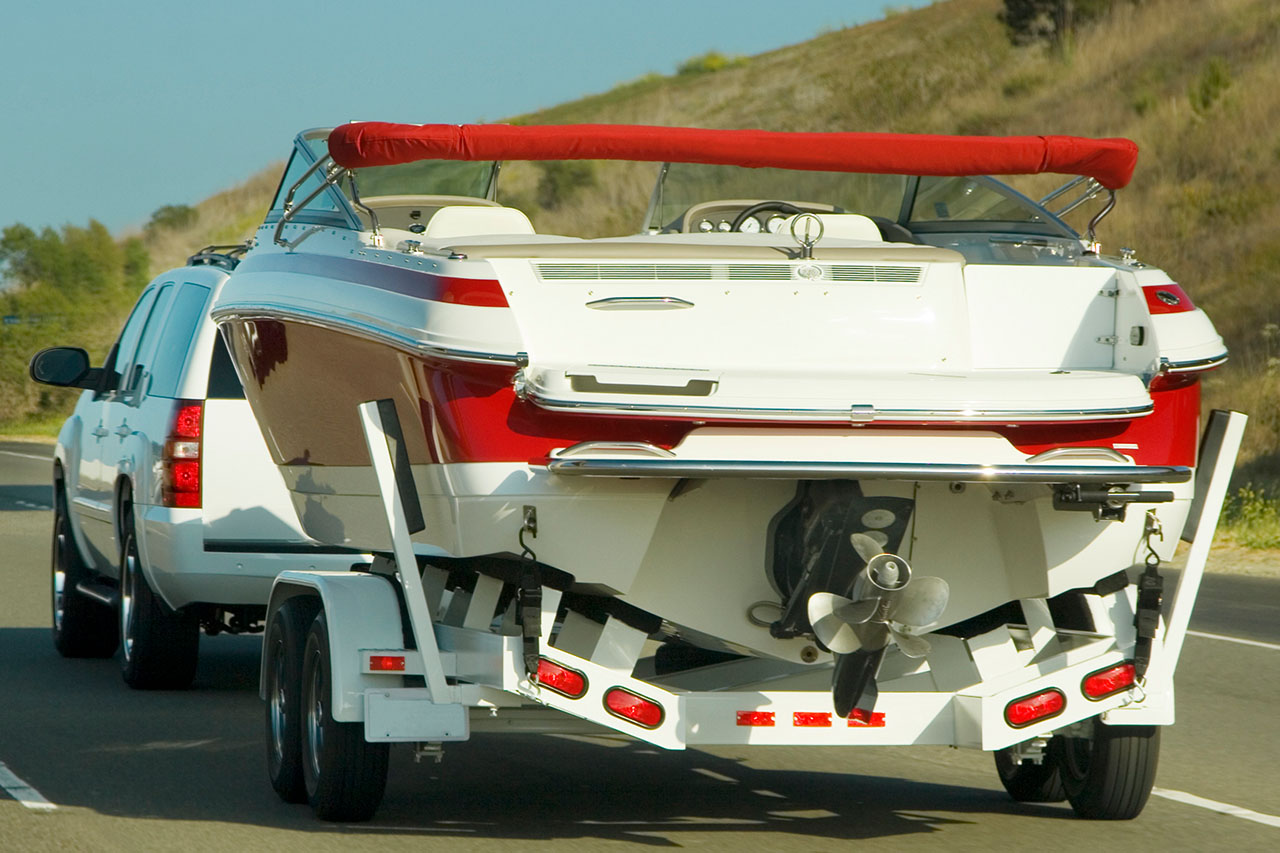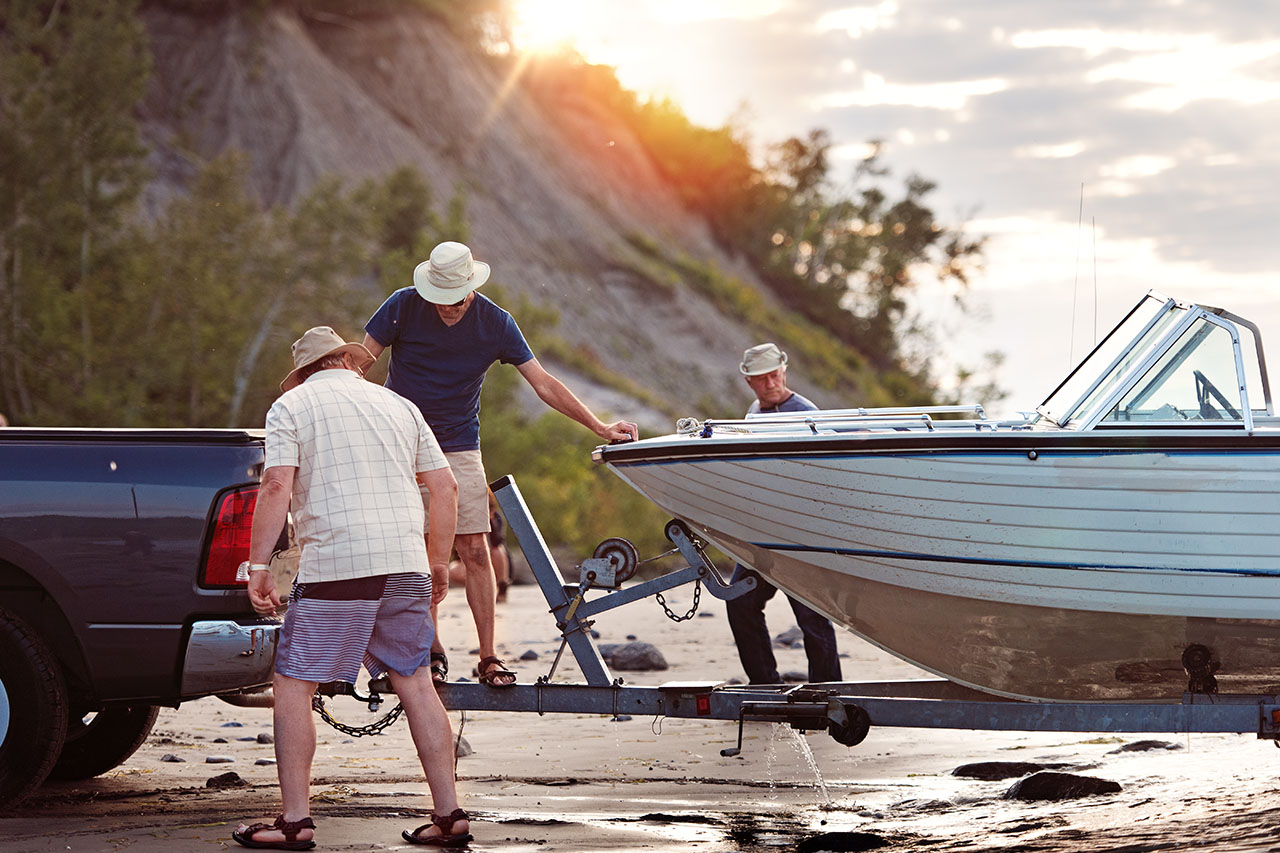10 Things to Know Before You Buy a Boat Trailer
In the recent frenzy to buy a used boat during the recent surge in demand, many buyers bought boats in the 18 to 27 foot range without a trailer, and as the season winds down it’s now time to find one. If you’re one of the new boat owners stuck without a trailer, here are 10 tips to help you identify what trailer you need. While there are a lot of factors and options in buying a trailer, you only need to figure out a few things before you’ll be ready to being your search. If you happen to be considering selling your boat to take advantage of the market, you may want to consider selling your trailer separately since they’re in such demand.
01
Your boat’s measurements
First things first: Measure your boat’s true length and weight.
This is the most crucial first factor in identifying the size trailer you will need. The way to measure your boat length is actually from the bow eye to the transom or drain plug. Do not just go by the length of the boat the manufacturer provides, because this often includes things like the swim platform or the bow pulpit. Weight is even more important in determining the trailer. When it comes to weight, similarly, the manufacturer-provided weight is for the boat without fuel, engines or accessories. You will have to estimate the weight of it including all these items. You can search for a boat weight calculator online to better estimate the total weight; many trailer manufacturers provide them.
02
Your vehicle’s tow capacity
Next up, review your car manufacturer’s manual to be sure that your vehicle a) can tow a trailer and b) that its weight capacity is sufficient for your potential boat load.
The manufacturer’s manual of your vehicle will tell you how long the trailer can be, how heavy the load can be, and the maximum “tongue weight” of the trailer itself (this refers to the downward force the tongue that connects the trailer exerts on the hitch). Keep in mind you will also need to ensure your vehicle is outfitted with a hitch system that matches the trailer and the boat specs. (See #8)
03
Trailer material
Aluminum vs galvanized steel: each has its pros and cons when it comes to boat towing.
Aluminum trailers are very popular because of their light weight and corrosion resistance. Adding less weight is crucial when considering the tow load for your vehicle. Galvanized steel trailers do a better job of protecting the brake and light lines, but are heavier, and prone to rust.

ONE OF THE MOST crucial aspects of towing your boat is your vehicle’s tow capacity.
04
Suspension: spring vs torsion
Next, you can even choose your trailer by its suspension type—each has its advantages.
Spring suspension is the most widely-used for trailers. It’s been around the longest and is most dependable for even tire wear and a consistent ride. Springs also do a great job of absorbing shock, which will reduce the transport wear and tear on your trailer and your boat. They’re also less expensive to maintain. Torsion suspension is known for reducing shock and offering a smooth ride, and it’s less susceptible to corrosion than spring, requiring less maintenance. However, torsion suspension is more expensive to repair and replace.
05
Light Type: incandescent vs LED
Most trailers are outfitted with standard, incandescent lights waterproofed to withstand being repeatedly submerged in water.
However, some trailers are upgradeable to LED lights. LED lights are just as resilient to water, but they last longer and do a better job of standing up to road vibration, so you can worry less about having a trailer brake light or turn signal out while towing your boat.
06
Trailer tire type
Trailers do not use the same type of tires that passenger or light truck vehicles do.
They instead are ST tires, or “Special Tires,” which are engineered to carry heavy loads on non-powered axles. ST tires have thicker sidewalls, and most are also radial, which provide longer tread life and more road contact and maneuverability. ST tires are considered among the best boat trailer tires.

Depending on towing size and weight, and state requirements, your trailer may have brakes, and the requirement varies.
07
Brake requirements
Depending on weight capacity and length of the trailer, it may include brakes.
Many states have regulations that require trailer brakes for certain specs based on something called the Gross Weight Vehicle Rating, or GVWR. A general standard is that trailers with a GVWR of 1500 lbs or more are required to have brakes on all wheels. The trailer brake requirements for your state can be found on your state’s motor vehicles website with a quick search.
08
Hitch requirements
Trailer hitches are also classified, like brakes, according to their GVWR.
You will often see this “Class” in your vehicle owner’s manual as well. Class 1 has a maximum trailing capacity of 2,000 pounds; Class 2 is 3,500 pounds, Class 3 is 5,000 pounds, and Class 4’s maximum rating is 10,000 pounds. A trailer should never exceed this capacity or it may damage your vehicle and your boat. In fact, a general rule is that the total weight of your boat, fuel, engine and gear should be no higher than 85% of the GVWR for your hitch/vehicle. This margin of error ensures safe passage for those aboard your vehicle, and protects your vehicle and boat from damage incurred during transport.
09
Other trailer accessories
There are other accessories your trailer may or may not come with, but all of these parts are available aftermarket.
Jacks raise and lower your boat to allow you to hook and unhook your trailer, unless you’re lucky enough to invest in a hydraulic boat trailer. The type of jack—single wheel, dual wheel, or foot jack styles—usually depends on the weight capacity of the trailer. Load Guides attach to the rear of the trailer and extend out of the water to provide visibility to assist the driver in loading the boat. And for bunk trailers, a common accessory found is the poly bunk cover. These covers are used on top of the carpet already affixed on the bunks to protect the boat from the trailer material. Adding UV resistant and durable poly bunks also provides a smooth surface that allows the boat to move more easily on and off the trailer.

Adding a few key accessories can save time and hassle, and extend the life of your trailer.
10
Trailer maintenance
Your boat is only as safe and secure behind your vehicle as the trailer is well-maintained.
A good rule of thumb is to have your trailer serviced when your boat is being serviced. Since your boat and trailer are literally and figuratively linked, the condition of one will affect the other. Happy trailer shopping! Don’t forget to grab the boat trailer bill of sale. And while you’re doing the dreaded task of saying goodbye to boating season for a little bit, or even wondering how to sell a boat, check out this article about winterizing your boat.
